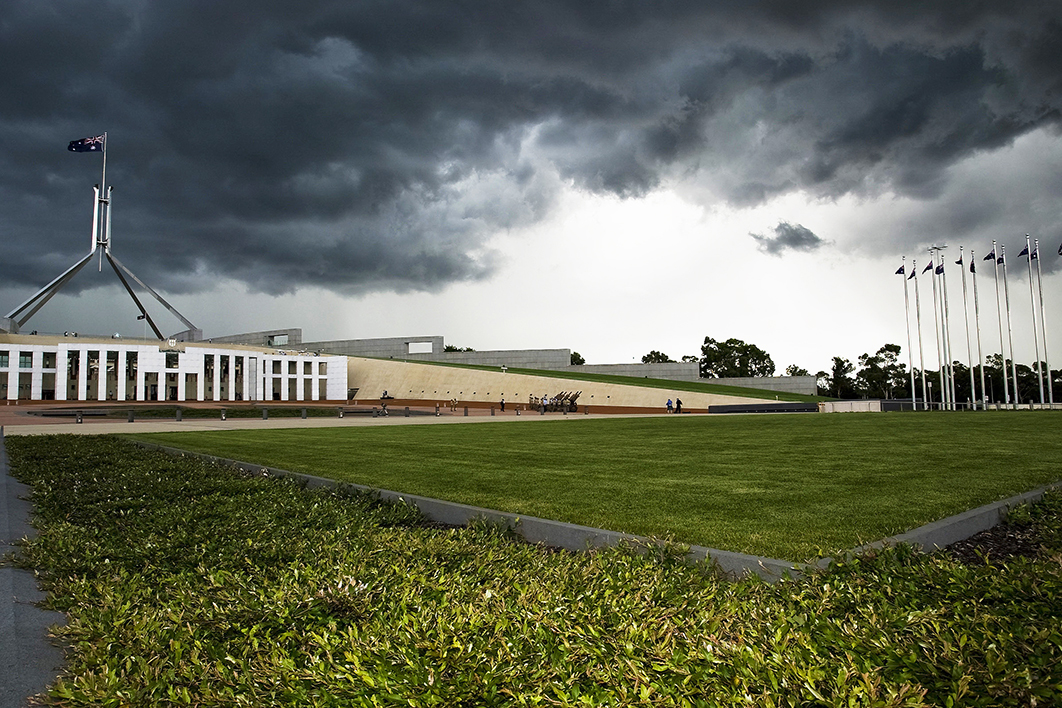Australians are losing faith in politicians, politics and even democracy itself — and is it any wonder? Another day, another political scandal. Today it’s One Nation caught apparently soliciting donations from the American gun lobby. What will it be tomorrow?
Not only do we not trust politicians to “do the right thing,” but 85 per cent of Australians think at least some federal politicians are corrupt. Whether MPs deserve this cynicism and suspicion is almost beside the point; they need to act to win back the trust of the people. And not just for the sake of their jobs: over time, a widespread loss of trust in political institutions can undermine representative democracy itself.
While there are many causes of this decline in trust, one important factor is a growing sense that people in government look after their own interests, or those of powerful groups, rather than the public interest. Public cynicism is fed when parliamentarians abuse their entitlements, accept lobbying roles after they leave politics, or receive benefits from groups seeking to influence policy.
Federal politicians have accepted at least fifty-five corporate-sponsored overseas trips since 2010, according to an analysis of politicians’ disclosures by the Australian Strategic Policy Institute. About 68 per cent of federal ministers and shadow ministers have declared corporate-sponsored hospitality (events or travel), and 7 per cent have accepted overseas trips sponsored by a foreign government or agency. Such hospitality can create an actual or perceived conflict of interest.
Clear rules on conflicts of interest should apply to all federal parliamentarians. A code of conduct for federal MPs should set a standard that the public, the media and parliament can hold elected officials to. And the code should be independently administered to build public confidence that it is followed and respected.
Many Australians suspect that interest groups with the resources or connections to lobby or donate to politicians get special treatment. They’re right to be concerned — sometimes bad policy is made, or good policy dropped, because powerful groups have too much say.
Many other democracies have stronger rules on political donations and lobbying, designed to keep that special-interest influence in check. Most OECD countries restrict political donations or expenditure (or both). Australia does not. As a result, our political system seems to rely on private funding to a much greater extent than do those of other developed nations. Capping expenditure on political advertising during election campaigns would help to limit the influence of money in politics, and would slow the arms race between political parties for more and more donations.
Sunlight is the best disinfectant when it comes to tackling special-interest influence on policy. The federal government should make political donations and lobbying more transparent, so that the public, media and parliament itself can better scrutinise policymaking. It should lower the donations disclosure threshold, require political parties to aggregate donations below the threshold, and introduce real-time disclosure. We should know who donates the big dollars to political parties, and we should know it when it matters — in the lead-up to an election.
Australians should also know whom their ministers are meeting with, and not meeting with, when they’re developing policy. Publishing ministerial diaries and registering lobbyists with privileged behind-the-scenes access to Parliament House would give voters much better information about lobbying and the chance to speak up if they feel their voices aren’t being heard.
The federal regime for investigating corruption in the public sector and political establishment is also weak. Several bodies have oversight of different parts of the system, but their scope and powers leave significant gaps.
Recognising this, the Morrison government announced in December that it would establish a Commonwealth Integrity Commission. This is a step in the right direction, but it won’t help restore public trust in politicians and public officials unless it is well designed, adequately resourced, and supported by broader institutional reforms.
The government’s initial proposal has significant flaws. The new commission should have capacity to receive and investigate tip-offs. It should be empowered to investigate corrupt and high-risk misconduct. And it must be able to inform the public of its findings.
Most comparable countries have stronger integrity regimes than ours, as do all Australian states and territories. Most states have introduced controls on money in politics and are more transparent about ministers’ interactions with interest groups. Every state has an integrity or anti‑corruption commission and a code of conduct for members of parliament.
These state government initiatives show that reforms to boost transparency and accountability in policymaking are politically possible and can enhance democratic accountability without creating a substantial administrative burden. It’s time for federal politicians to get their integrity back. •




